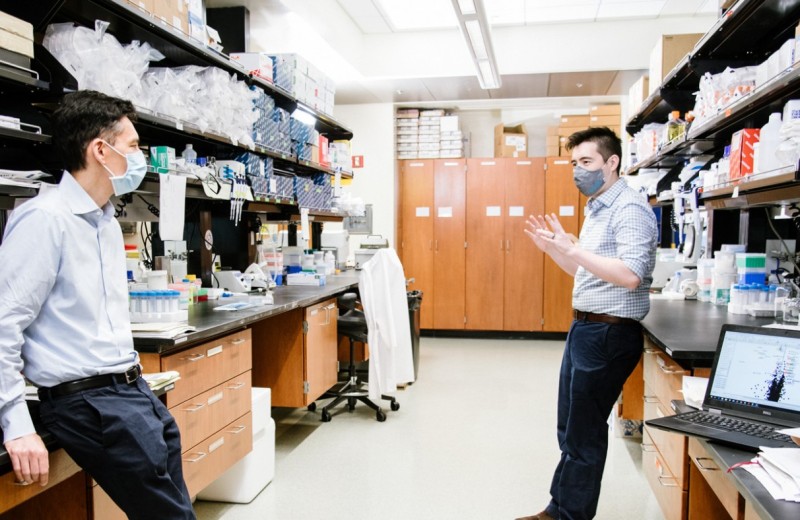Gladstone NOW: The Campaign Join Us on the Journey✕

SAN FRANCISCO, CA—Scientists at the Gladstone Institutes of Cardiovascular Disease (GICD) have found that a key enzyme involved in absorbing fat may also be a key to reducing it. The enzyme, acyl CoA: monoacylglycerol acyltransferase 2 or Mgat2 is found in the intestines and plays an important part in the uptake of dietary fat by catalyzing a critical step in making triglyceride, a kind of fat. Triglyceride accounts for nearly one-third of the fat eaten by people in developed countries.
Researchers in the laboratory of Robert V. Farese, Jr. MD, found that mice that were genetically modified to lack Mgat2 remain normal on a low-fat diet. However, when fed a high-fat diet that is similar to that eaten by many Americans, the mice do not get fat and do not develop other symptoms of obesity, such as glucose intolerance, hypercholesterolemia, and fatty livers. The mice eat the same number of calories as other mice, and the calories are fully absorbed. Results of their study were published in the current issue of the journal Nature Medicine.
“Because mice that lack this enzyme do not gain weight on a high-fat diet, it is an intriguing target for future interventions to prevent weight gain and the problems associated with that extra weight,” said Dr. Farese.
The mechanism of action, the researchers identified was that the lack of Mgat2 may reduce the uptake of fat in the small intestine and delay its entry into the blood. This process may dissociate fat from carbohydrate absorption and insulin secretion and ultimately lower the amount of fat stored and used. How this happens is not clear. One possibility is that the absorbed fat is partitioned more to tissues where it is burned up.
“Differences in Mgat2 expression may contribute to the propensity of some people to gain weight from diets rich in fat,” said Eric Yen, PhD, lead author of the study. “Our findings suggest that inhibiting this enzyme in the small intestine might be an effective way to treating metabolic diseases that result from excessive fat intake.”
Bringing Modern Science to Vitamin Biology: Isha Jain Wins NIH Transformative Research Award
Bringing Modern Science to Vitamin Biology: Isha Jain Wins NIH Transformative Research Award
Leveraging modern scientific tools and techniques, Jain intends to transform our understanding of the critical roles that vitamins play in health and disease.
Awards News Release Cardiovascular Disease Jain Lab MetabolismCellular Energy Audit Reveals Energy Producers and Consumers
Cellular Energy Audit Reveals Energy Producers and Consumers
A team at Gladstone Institutes screened the human genome for genes that play a role in making or consuming cellular energy
News Release Research (Publication) Parkinson’s Disease Heart Failure Neurological Disease Nakamura Lab Disease Models Genomics MetabolismScientists Discover Drug that Increases “Good” Fat Mass and Function
Scientists Discover Drug that Increases “Good” Fat Mass and Function
Anti-cancer drug prevented less weight gain and caused mice to burn more calories thanks to higher levels of metabolism-boosting brown fat.
Ding Lab Metabolism Diabetes



